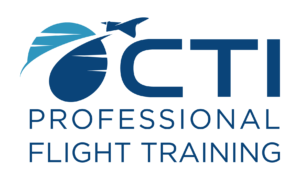Why Private Pilots Should Consider an Instrument Rating
If you have a private pilot’s license, but don’t have an instrument rating, you may be missing out. An instrument rating allows you to fly rather than be stuck on the ground during cloudy weather conditions, and other weather conditions that cause low visibility. The Instrument Flight Rules Rating (IFR) training requirements include 30 hours of pre and post-flight ground school, 40 hours of instrument flight training, 50 hours of PIC Cross-Country, and the successful completion of an instrument written exam.
In this article, we’ll take a look at some compelling benefits private pilots can enjoy after they get their instrument rating.
A Better Pre-Flight Plan
In most cases, a pilot with instrument training will prepare a better pre-flight plan compared to a pilot with no instrument rating. The training prepares you for alternatives, deviations, fuel stops, and a number of other possible variables you’ll encounter.
A More Strategic Aviator
Pilots with an instrument rating tend to be more forward-thinking. Less skilled pilots without a rating are usually operating in the moment and one move at a time. Being a couple of steps ahead gives you a big advantage in the sky.
IMC Prepared
Flying into Instrument Meteorological Conditions (IMC) can be a challenge. With an instrument rating, you’re better prepared for the unexpected limitation brought on by poor visibility and unpredictable weather and cloud developments.
More Accuracy
When you have an instrument rating you’ll have an improved level of accuracy. IFR training gives you an opportunity to learn more precise flying techniques in terms of power changes, pitch, heading, altitude, and airspeed.
More in-tune with Weather Predictions
Pilots improve their ability to notice and predict weather conditions after they’ve gotten an instrument rating. The required training includes a heavy focus on the ins and outs of weather reporting and weather theory. It also helps build specific skills such as recognizing frontal passages, ice, thunderstorms, and more.
Become a Traffic Pro
After you’ve completed IFR training, you will also improve your ability to spot nearby traffic with a high level of accuracy and understanding of the leading pilot reporting terminology.
Ready to Get Your Instrument Rating?
If you’re ready to get an instrument rating in addition to your private pilot’s license, there is no time like the present. CTI offers an Instrument Flight Rules Rating Program that prepares private pilots for clouds and other bad weather in an accelerated format. Pilots build their confidence in complex and busy airspace and are only certified when they have reached an airline-standard of skill for flying in little (or no) visibility. After getting an instrument rating, pilots are also qualified to begin a commercial pilot’s certification program.
Come visit our Florida campus or Tennessee campus. You can request a tour and see all that CTI has to offer our students.
